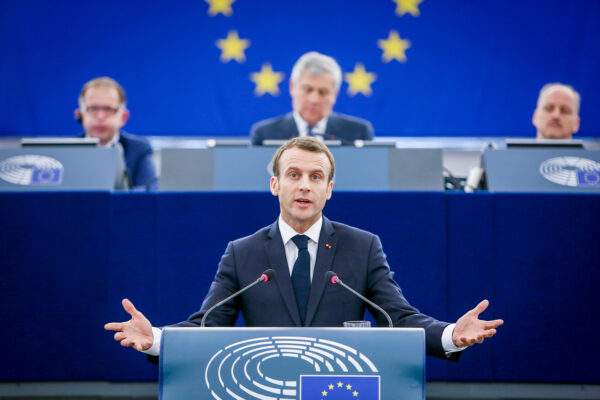
In op-eds in newspapers across the continent, French president Emmanuel Macron has called for a renewal, or renaissance, of the European project.
It is his second big push for EU reform since his speech at the Sorbonne in September 2017.
At the time, I divided Macron’s proposals, which ranged from a common eurozone budget to a single European asylum office, into the difficult, doable and low-hanging fruit. (I didn’t get everything right; there is still no single European asylum policy but there will be a eurozone budget, if a much smaller one than Macron envisaged.)
Let’s use the same division this time.
Difficult
- Condition membership of the passport-free Schengen Area on stringent border controls and participation in a single European asylum policy. Central and Eastern European governments will resist this.
- Harmonize wages across Europe. Difficult so long as there are still big differences in income between East and West.
- A European Climate Bank to finance the ecological transition. To Northern European ears, this sounds like another Mediterranean ploy to get more money.
- Launch a Conference for Europe with input from citizens, academics, business and labor groups. This is the equivalent of a constitutional convention and unlikely, in any effectual form, for the same reason: who wants to empower a one-time body to rewrite all the rules that have been carefully negotiated in Europe over many years?
Doable
- A European Agency for the Protection of Democracies to defend elections against cyber attacks. The EU already funds efforts against Russian disinformation.
- A common border force and a European asylum office under the aegis of a European Council for Internal Security. A common border force already exists (Frontex). The Justice and Home Affairs Council, in which European interior ministers meet, could be reconfigured, à la the Eurogroup, into an executive body. The difficult part is the European asylum office.
- Treaty on defense and security, with a mutual defense clause, to spell out Europe’s responsibilities vis-à-vis NATO and create a European Security Council that includes the United Kingdom. There is already a mutual defense clause in the Treaty of Lisbon. With the UK, which has long resisted militarizing the EU, on the way out, and Germany finally on board, a European defense union could happen.
- Finance innovation by giving the brand-new European Innovation Council a budget on a par with the United States. The question is how much money would be involved?
Low-hanging fruit
- Ban foreign funding of European political parties. If it doesn’t happen, it’s because the problem is so small. The only parties that take foreign money are on the far right. France’s National Rally and Italy’s League have borrowed from Russia. The Netherlands’ Freedom Party is believed to have accepted donations from the United States.
- Punish companies that don’t follow EU data-protection and environmental regulations or don’t pay their full taxes. The European Commission is already aggressive on this front.
- Adopt European preference in public procurement and “strategic industries”. Donald Trump’s anti-trade policy, and state capitalism in China, make this an easy sell.
- Independent scientific assessment of substances that could be harmful to the environment and public health, “to counter the lobby threat.”
- Investment in and academic partnerships with Africa.
